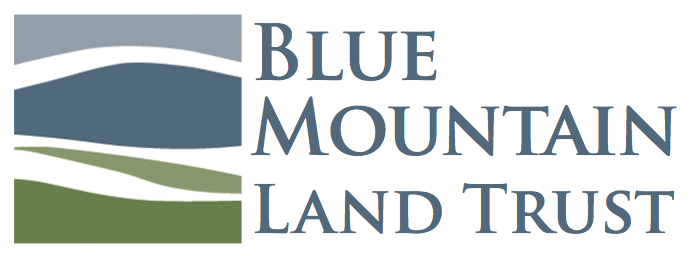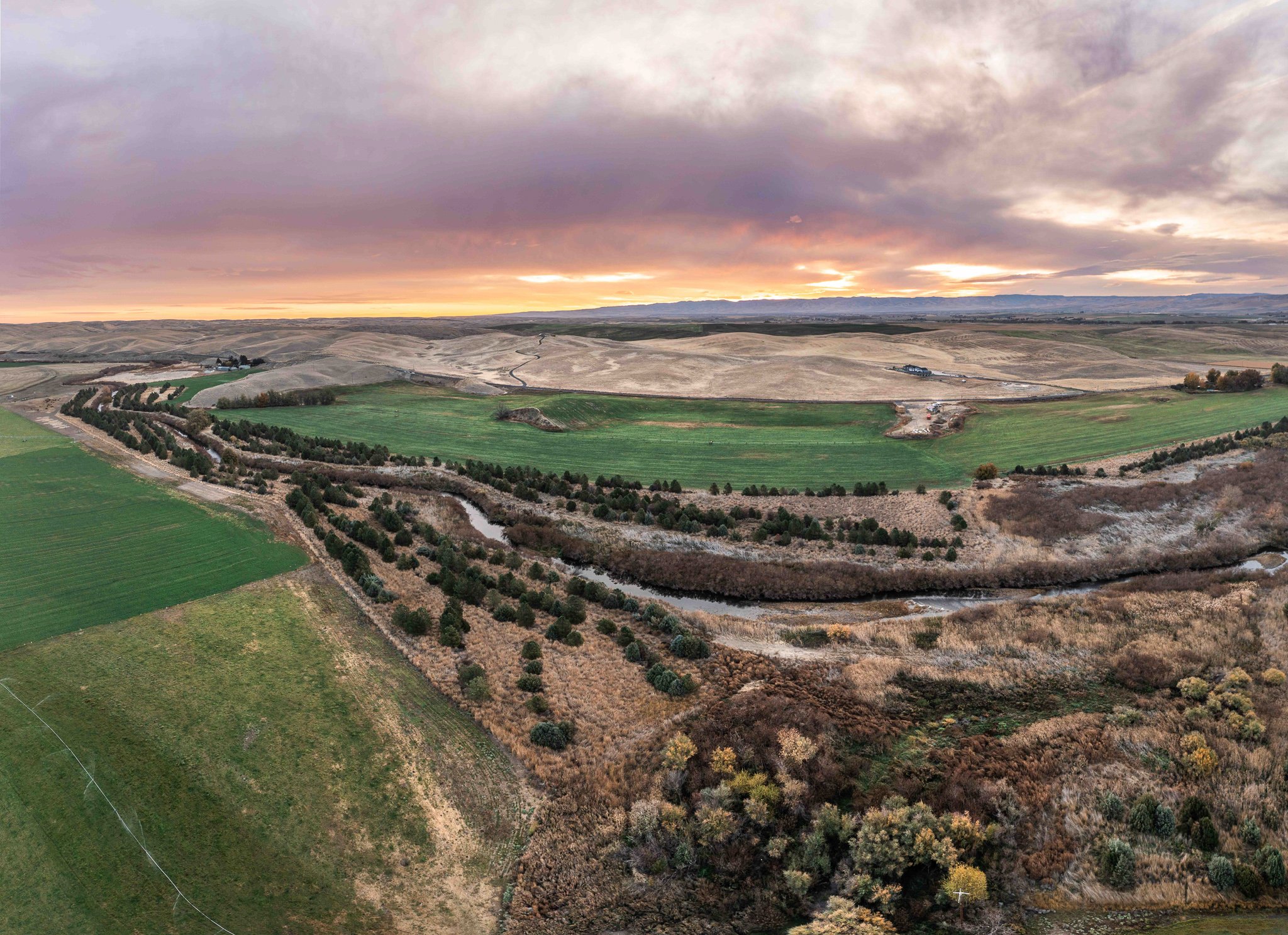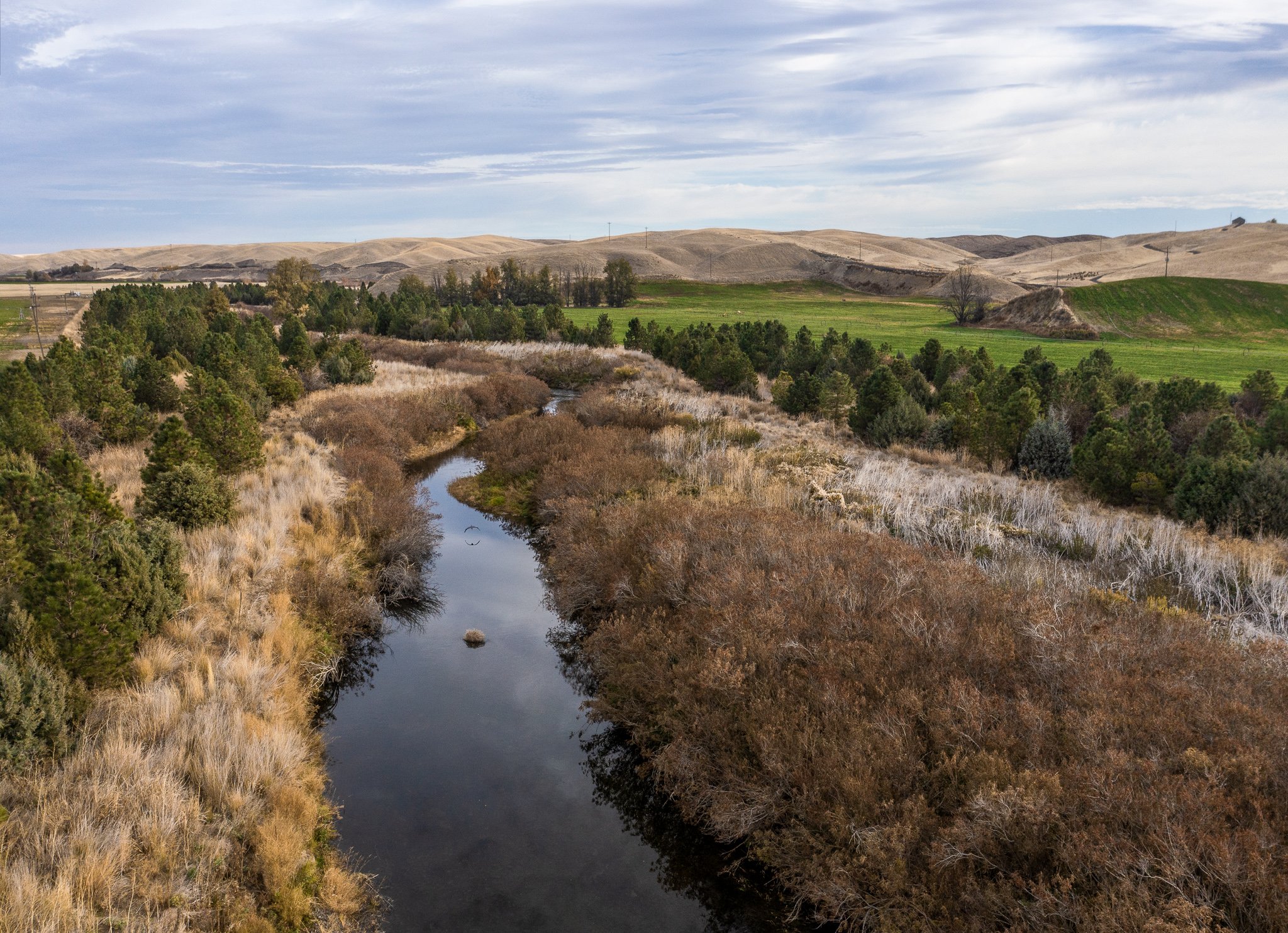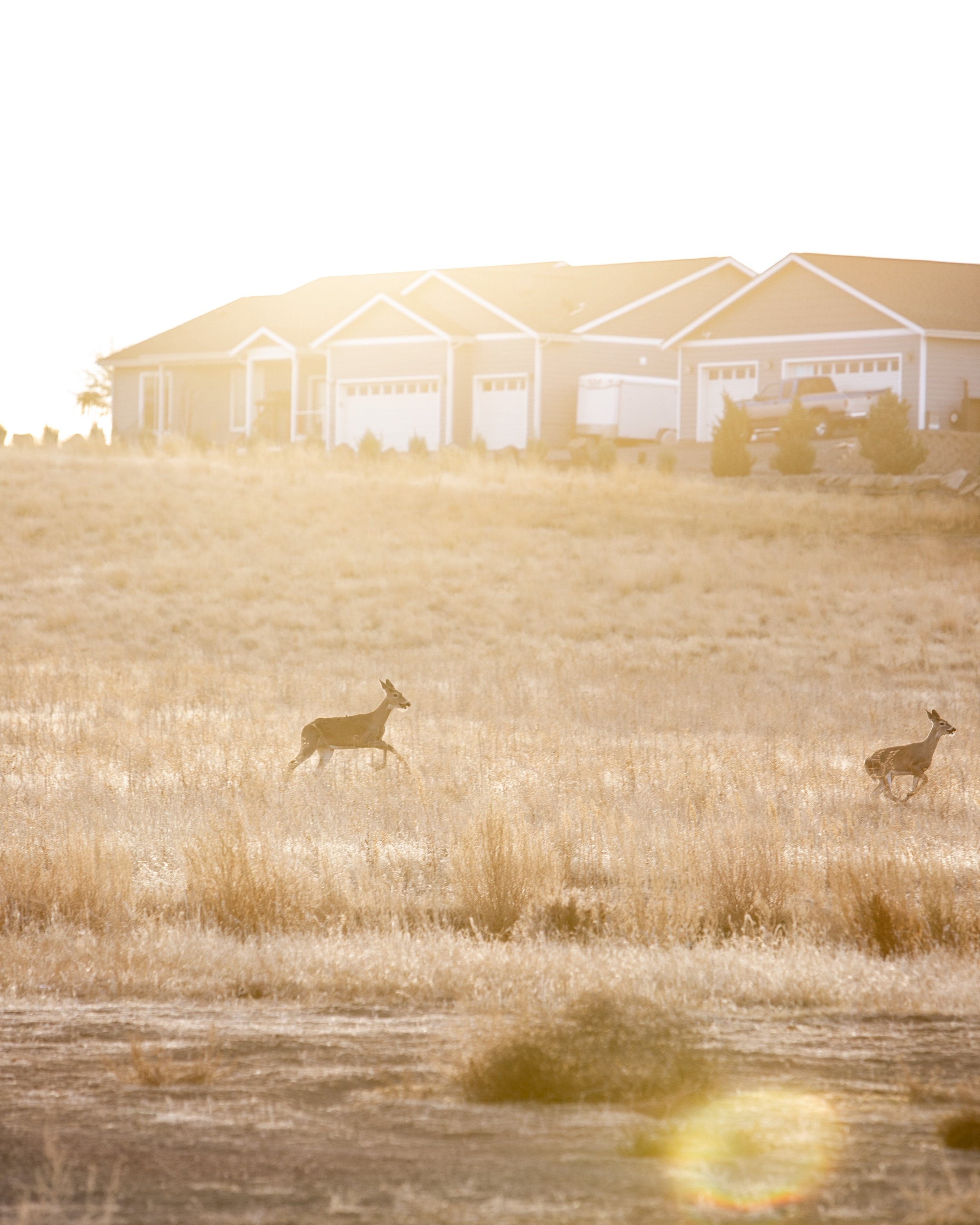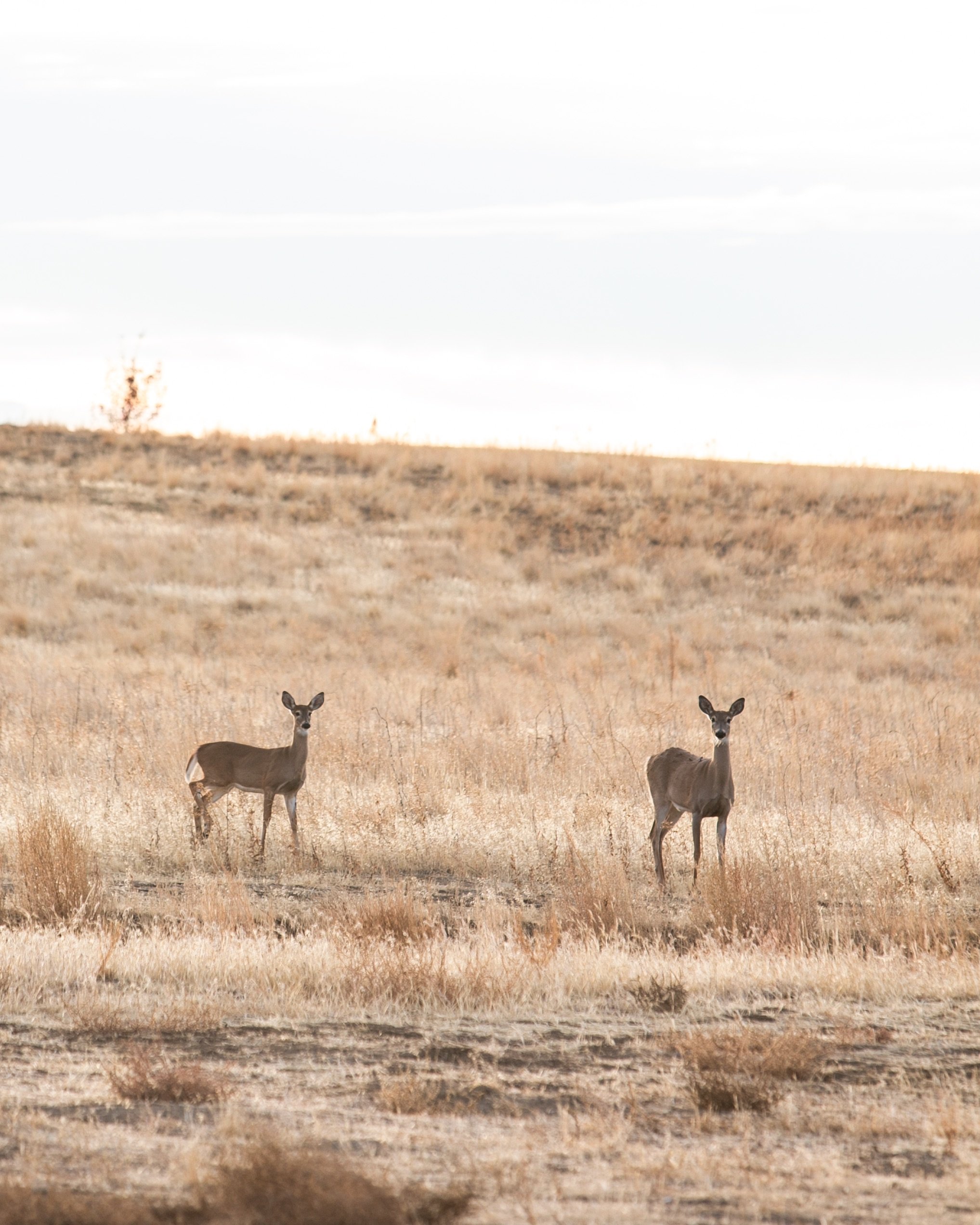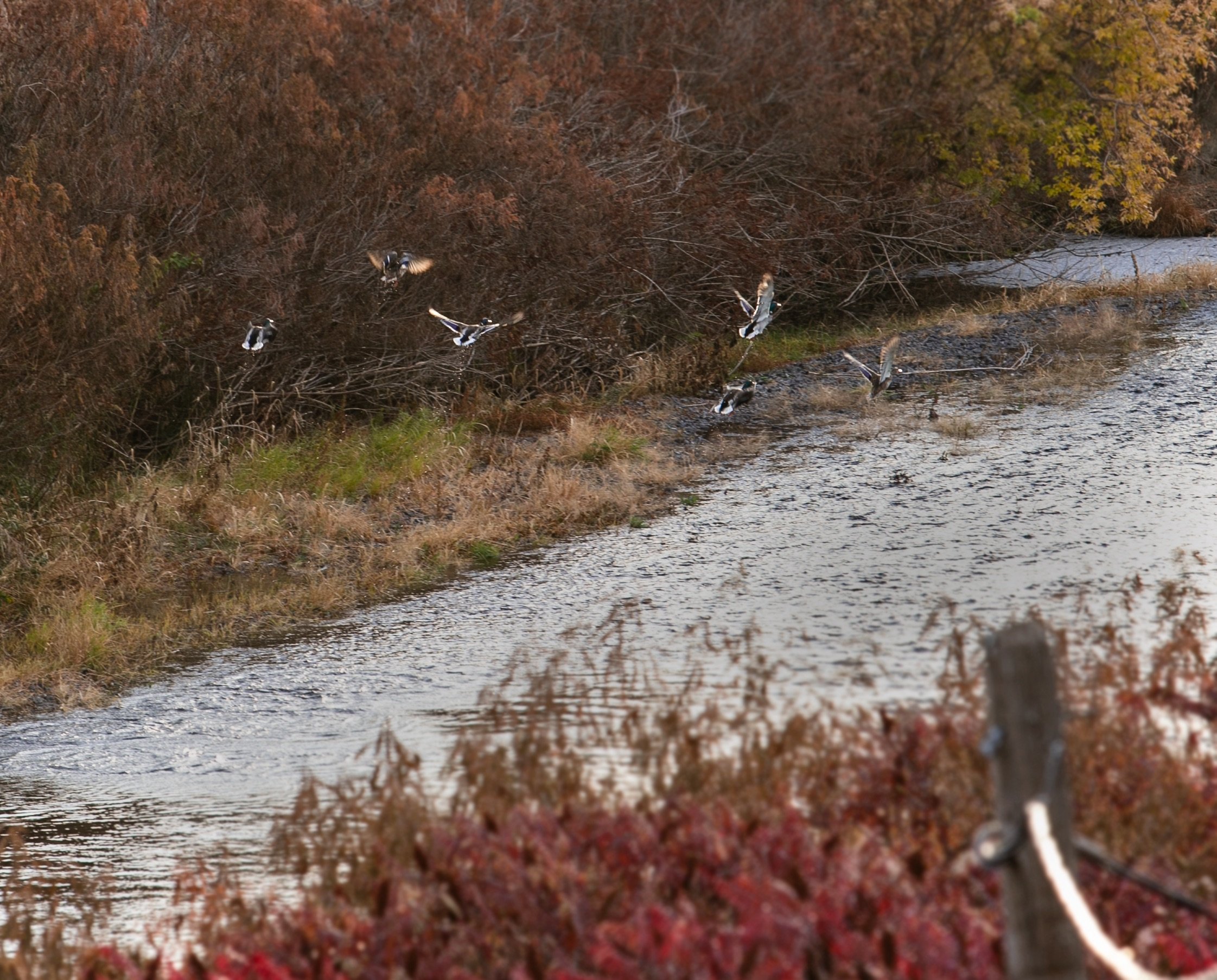Courageous Conservation: Seachris Family Farm
Have you ever worked on a project for over 20 years? The Seachris Family has.
PHOTOGRAPHS BY WILLIAM FROHNE
Just west of Walla Walla on Touchet North Road, the landscape is one of wheat, corn, and alfalfa fields. The road curves and winds and suddenly a grove of green giant trees emerge out of nowhere as if in an oasis. There is an orange sign facing the road that proclaims “Touchet Wildlife Refuge.” This is the Seachris Family Farm.
The Blue Mountain Land Trust (BMLT) completed a conservation easement on this property in August 2021. A conservation easement is a legal agreement between a landowner and a land trust to limit certain activities and to steward the land in a particular way, leading to greater conservation benefits for the soil, water, species, climate, and food.
When BMLT completes a conservation easement, we are responsible for regularly monitoring and reporting on the properties to ensure that they are being maintained responsibly. This ongoing land stewardship is what we mean when we say, “We protect the land you love. Forever.”
Carolyn Seachris is now in her 90s, but the family first began the process of finding a succession plan for their land over 20 years ago. Like many older farmers, her children Gail, Peggy, Eric, and Kelley have achieved advanced degrees and have wonderful careers, and they have not adopted farming as a profession. The Seachris family now leases their farm to a neighboring farmer but they reminisce about the early years.
“The kids knew how to work. When they got up into high school, they’d change sprinklers sometimes in the morning before they’d go to school. Always change ‘em at night. If it were baseball season in the spring, the girls changed the sprinklers. If it were volleyball season in the fall, Eric would change sprinklers. They all learned to drive on the farm, dodging hay bales and so forth.”
The Seachris family wanted to ensure that their farm was protected according to their conservation values after her passing. Carolyn Seachris reached out to several conservation groups throughout Washington state but found that many of them would not steward the land to her liking or would sell it eventually to fund their work. They didn’t seem to understand the inherent value of her property, which is so unique to the Blue Mountain region.
In the early 2000s, Seachris’ daughter Gail sent her an article about a land trust, and Seachris reached out to the Palouse Land Trust for help. Touchet is not in their service area, but Seachris says they encouraged her to start her own. Seachris connected with a group of passionate volunteers, including local lawyer Dan Clark, who were forming the Blue Mountain Land Trust at that time.
Dan Clark says, “In June 1999 naturalist and Touchet-area farmer Carolyn Seachris told me she was having no luck getting the Nature Conservancy or the National Audubon Society interested in protecting her farm and wildlife preserve located along two miles of the Touchet River. [My wife] Barbara and I had previously explored the potential for involving national land trusts here and knew there were none willing to serve our area, so I told Carolyn that if she wanted to donate conservation easements on her property, we’d form a much-needed local land trust in order to receive them.”
Dan rallied many other local residents who put in the immense time, energy, and resources that it takes to start and run a land trust.
Clark says, “Among the first to agree to serve was Whitman College President Tom Cronin, and Tom’s participation helped us establish what became a blue-ribbon founding board that included Walla Walla Community College Vice-President Jim Peterson, Walla Walla College engineering and environmental studies professor Jon Cole, Walla Walla County extension agent Walt Gary, retired banker Carl Schmitt, farmers Fred Kimball and Mark Wagoner, Audubon leader Shirley Muse, Confederated Tribes of the Umatilla Indian Reservation biologist Carl Scheeler, retired Whitman treasurer Pete Reid, and local attorney Tom Scribner.”
Conservation easements regularly take two to four years of concerted efforts. Baseline documents that lay out the current state of the land must be created. Funding needs to be acquired to pay the landowner for the property rights they are removing from the land, which usually include the right to subdivide or develop the land. There are countless regulations that must be observed and legal documents to create to be successful. The process often experiences setbacks. And, of course, landowners and land trusts must come to a mutually beneficial agreement about the terms of the conservation easement.
Seachris jokes that she is the “Mother of the Blue Mountain Land Trust” since she first broached this conversation with Dan Clark in 1999. It is a testament to our commitment to courageous conservation that we have protected over 13,000 acres from development in the last 22 years.
The Seachris family first became conservationists in the 1960s, when it was common practice for hunters to use the family farm to hunt for wild game. But one day, they saw a hunter shoot a rabbit just for sport, not food. Seachris was deeply troubled by this disregard for wildlife. “It just made us sick,” she recalls.
“We’ve got quite a few animals on the place. We have coyotes, deer, cougars. An elk every once in a while. A moose shows up on the river, but I don’t think it’s ever gotten down here. Hawks and even wild turkeys.” Seachris laughs about how she put out water for the turkeys on a heated water bowl in the winter so the water wouldn’t freeze.
The Seachris family farm has many valuable conservation benefits. One of the main reasons the family and BMLT worked together to protect the farm was to remove the right to subdivide. A new development of houses is already being constructed across the road from the farm, and the family fiercely wants to protect the rural character of Touchet and the surrounding area.
Through the 215-acre conservation easement, Seachris also made legal the ban on hunting that her family has been trying, often unsuccessfully, to enforce for the last 60 years. The areas of her property that contain the Touchet River are also now being stewarded to protect the species and water.
The property includes part of the Touchet River that provides important migration habitat for Mid-Columbia steelhead, spring Chinook, and bull trout. The riparian area teems with life, from tiny micro-invertebrates to migrating waterfowl stopping over for a quick snack break. White-tailed deer find refuge under the ponderosa pine and cottonwood trees lining the streambank. Beavers maintain the complexity of the river by constructing dams upriver, which create pockets of pools ideal for migrating salmon. False indigo brush and willows provide dense cover for birds and stabilizes the streambank.
In an area where wildlife habitat is severely fragmented and degraded by development, the Seachris Farm provides refuge for a variety of species that highlights the interconnection between farmland and wildlife habitat.
The farmland’s soil is highly productive and in need of protection. The natural soils deposited by the Great Missoula Flood contribute to the farm’s agricultural viability. Approximately 90% of the property is designated as prime farmland or farmland of statewide importance, meaning that the farm contains nutrient-rich and permeable soils, favorable temperatures, and ideal growing seasons for producing food, feed, forage, and fiber crops.
Today, the farm is divided into seven fields that are utilized as irrigated pasture for alfalfa, triticale, teff grass, and tall fescue production. Cattle are rotated through the fields during the summer months, which aids in weed suppression and encourages natural disturbance necessary for soil health.
The Blue Mountain Land Trust is proud to support the protection and care of such precious landscape.
“It’s been a long haul,” Seachris says about the family’s decades-long efforts to protect the land that they love.
Courageous Conservation
We protect the land you love. Forever. Support our work and make gift today.
